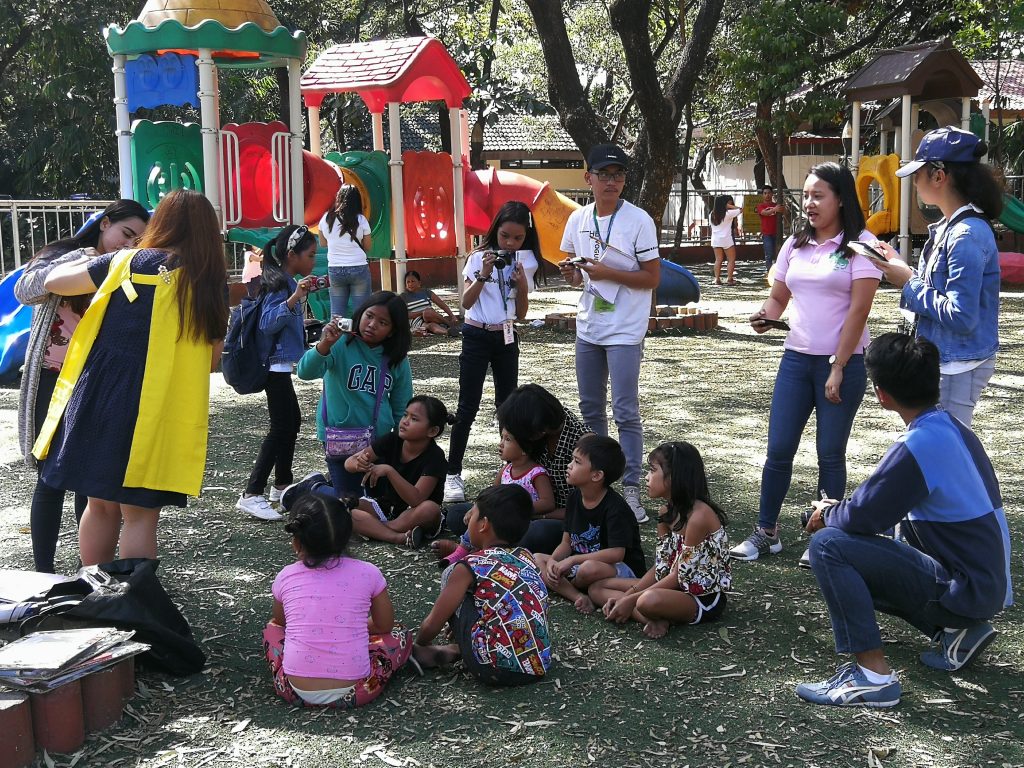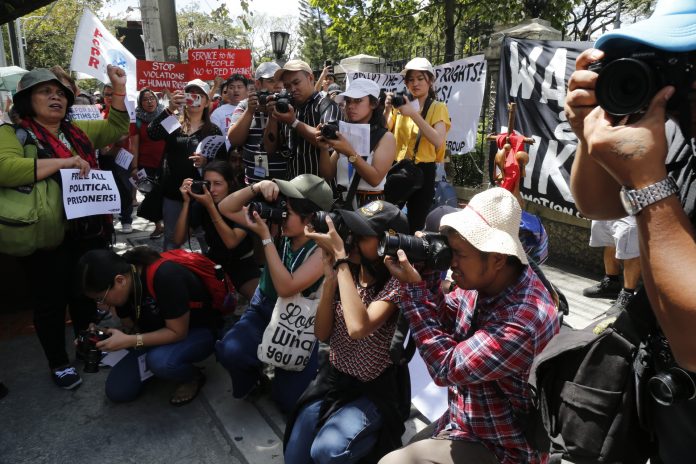To be a journalist in President Rodrigo Duterte’s upside-down world—where the idolatry of death shapes the industry of terror and machineries of fear—can be summed up in two words: impractical and reckless.
My lectures on Journalism Ethics to campus journalists all over the country for the past several years carried this singular message: Don’t even think about it.
Don’t, if you want to live; don’t, if you think journalism is your ticket to the red carpet because it isn’t. Don’t, if you can still see yourself managing a career other than being a target of the government or even your very own school.
To nail the argument shut, I spew a litany of statistics on the murders of journalists, survival wages (if wages come at all), libel cases, the unimaginable daily workload and largely glum working conditions, and the all-too-familiar threats that could either land a journalist in jail or on the cold aluminum cradles of the morgue.
The market for good and ethical journalists to combat fake news is in high demand. However, I find it crucial to remind aspiring journalists that the work is not a road to stardom, as some corporations would have others believe.
The role of a journalist is clear: to bring to light stories of public interest as freely as they can make it even at a time when mere speaking is deemed a crime. We cannot have zealous rookies swaggering into the newsroom with their degrees and honors thinking all is well in love and war.
A professional newsroom is too far removed from the usual social topography many young people are familiar with. Here, time moves triple the speed, and social ills such as poverty and corruption are just as real within its four walls as outside of it.
Campus journalists in history
With the recent signing of the Anti-Terrorism Act, these risks turn immediately into clear and present dangers. This is true to professional newshounds as well as campus journalists.
History attests to the perils faced by student writers. Consider Liliosa Hilao, a Communication Arts student and campus journalist of the Pamantasan ng Lungsod ng Maynila in the early ‘70s. In April 1973, roughly seven months from the day Ferdinand E. Marcos put the whole country under martial law, Lilli was arrested and detained at Camp Crame by the Constabulary Anti-Narcotics Unit. She was tortured, possibly raped, and left for dead the next day. The official report, however, pointed to suicide.
Hilao sat as editor of the campus paper, Hasik, and there wrote pieces that were highly critical of the Marcos regime. She was, in fact, the first to die under detention.

Refusing to budge
Regardless of the pressures, I’m happy to note that quite a number of student journalists take on the challenges of a professional newsroom shortly after graduating from college.
I spoke to Jose Mari Callueng about this (he is the former National President of the oldest existing alliance of campus journalists, the College Editors’ Guild of the Philippines (CEGP) and currently pursuing a Juris Doctor degree), and he said: “There is a good number of campus journalists who choose to continue with their journalism. Unlike other traditional organizations, CEGP leads its members to consider being media practitioners. We encourage them to tell stories that are not commonly discussed by the mainstream press.”
The people’s struggle, Callueng said, fuels the core competence needed to get things done. “Even after becoming part of the Guild, many of the former members continue with their advocacies in various movements. This has been the Guild’s commitment in all of 89 years: to continue its patriotic and democratic orientation, fully committed to serving the underserved, telling stories often left untold, advocating for the rights and the welfare of our countrymen.”
Crosshairs of censorship
Dedication to facts can put campus journalists at the crosshairs of government censorship. It is, in fact, expected of any government to do everything in its power to have journalists sing its praises. To this, Pulitzer Prize winning journalist, Manny Mogato, said in a recent article, “Journalists do not serve as publicists or as tools of propaganda for even the most popular leader of any country.”
Callueng tells the story of how a campus publication was pulled off the presses all because it was critical of the current administration.
“Under the term of President Duterte,” he says, “one of the glaring cases of campus press freedom violation is the withholding the release of the printed magazines of a student paper with contents criticizing the government’s war on drugs. Although this has been brought to the attention of the Commission on Higher Education (CHED) when I was still president of the Guild, this has not been acted upon by the alter-ego of the president. This tells us that protecting the freedom of the press, even in campuses, is not a priority of this government.”
Callueng also mentions red-baiting and the lure of self-censorship as main problems of campus journalists even before the Anti-Terrorism Act was signed into law. “During my term, when the Guild was campaigning for justice and peace, and student publications were reporting about the peace process, one of them received a message from a police officer tagging the Guild as a recruiter of New People’s Army (NPA).”
Beyond reportage
Karl Patrick Masola Suyat, currently serving as the provincial coordinator for CEGP-Laguna, shares how important it is for campus presses operating outside Metro Manila and functioning as provincial community newspapers to serve as venues for young voices.
“If the intention is to muzzle the campus press,” he said, “then all the more should student publications rise and roar in defiance; if the end goal is the obliteration of organs of dissent, then the job of a student publication in a time of Terror Law is to write beyond the simple idea of reportage.”
The mission, he says, should go beyond the familiar competitions in the yearly press conferences and the publishing of school announcements. “Effectively defeating state fascism relies on our ability and commitment to continue writing, reporting, and speaking truth about the powers-that-be even if, in the commission of truth-telling, we find ourselves at the crosshairs of Duterte’s death squads.”
Passing the torch
How prepared are campus presses in dealing with the possible onslaught of the Terror Law used side-by-side with the Anti-Cybercrime Law?
Felipe F. Salvosa II, assistant publications adviser to The Varsitarian, puts the paper’s goals into perspective. He said that while red-tagging has become a mainstay of online troll activity against young journalists, toning down their articles is the least of their plans.
“Our editors and staff members are students of good standing,” Salvosa said. “They may be critical of the government, but they are not out to overthrow it. We have no policy to tone down articles about the government. This is shown by our recent editorials on the ABS-CBN shutdown and the passage of the terror law itself. Our editorial positions are independent but also happen to be in line with the opposition of the Catholic clergy to the media shakedown and the terror law. As far as measures taken to prepare the staff, we are always in touch with alumni-lawyers who can help us when the need arises. We may include a discussion of recent government policy and legislative developments when we orient the staff members for the new academic year that will begin in August.
It is expected of any government hell-bent on weaponizing laws to use it against a free press. Legal actions against Rappler, the shutdown of ABS-CBN, and reports of mainstream columnists struggling under the weight of censorship are proofs of government action to muzzle the people’s voices. To make matters worse, media bureaus suffer daily retrenchment of workers due to Covid-19.
Campus papers are now being called upon to carry the torch. This is why Callueng makes a clarion call to all journalists on campus: “Now more than ever, campus journalists must stand with the Filipino people.”
Joel Pablo Salud is an editor, journalist and the author of several books of fiction and political nonfiction.









